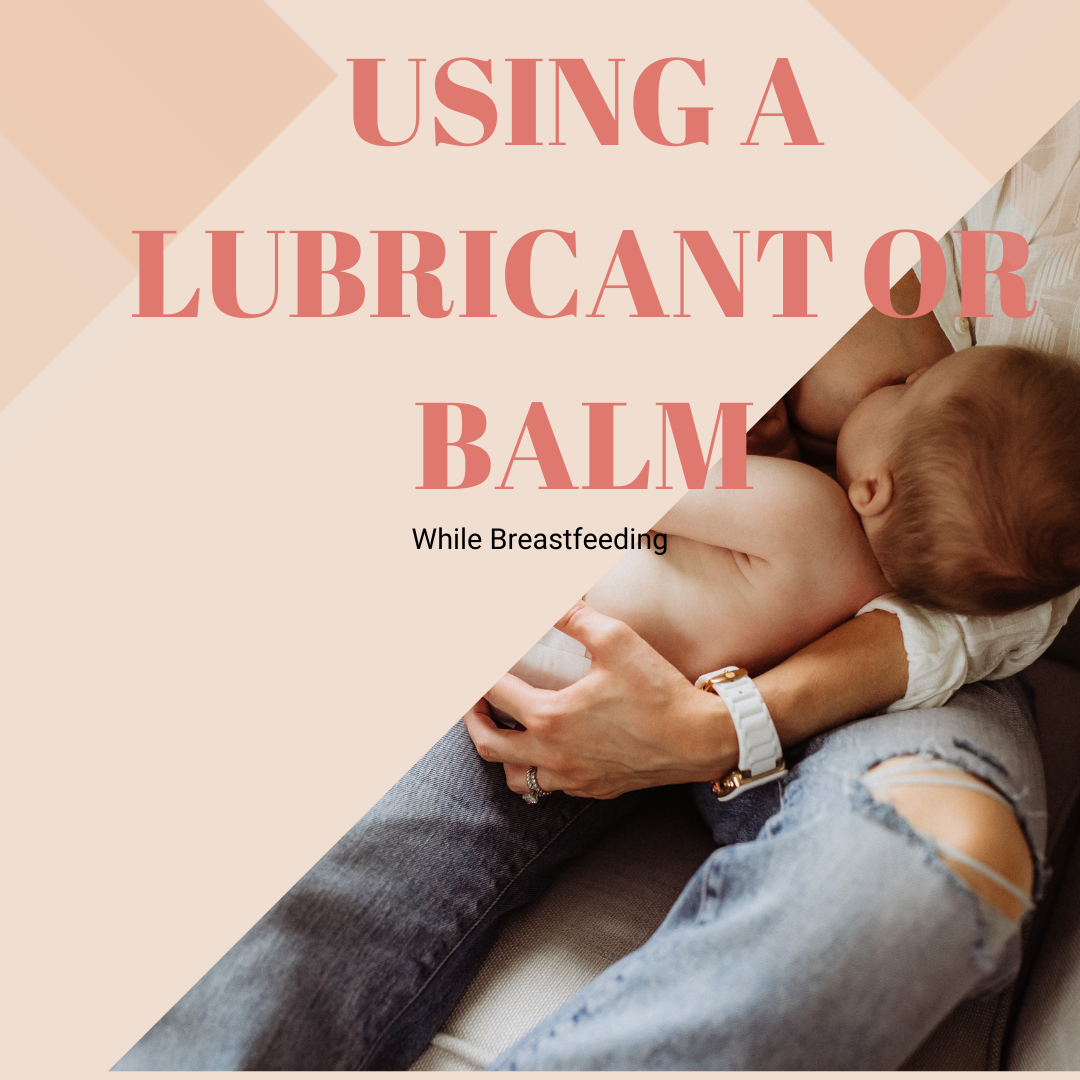Using a Lubricant or Nipple Balm While Breastfeeding
Mommy Care Team
It’s not Lanolin or Bust
Recently the statistic that breastfeeding equates to a full time job has been circulating the internet. We love this one because it sheds light on such an often invisible and overlooked aspect of motherhood. Our question is, whether you are nursing or pumping, do you use a nipple balm or lubricant to nourish your sensitive skin?
Here’s the stat: Breastfeeding for one year takes about 1,800 hours. A full time job with three weeks vacation is around 1,900 hours.
If any other part of our bodies took as much use, or experienced so much friction, you bet we’d have a balm, lotion, or cream to nourish it. Why then as breastfeeding mothers, do so many of us just bear it?
When I was sent home from the hospital with the small tube of lanolin, I tried it. It was an immediate no. The consistency, the way it stuck to your bra. I couldn’t stand the stuff. But, I was also a busy mom that didn’t have the time to look around for another option. What surprised me is that I didn’t stop to even ask anyone else if they had a suggestion or alternative. And I worked in the mom and baby space!
You can use anything from coconut oil to specialty nipple balms and butters that are available in store or online. There’s actually a wide range of options with different ingredients and varying benefits.

Reasons to Use Nipple Lubrication or Balms
Lubrication
Some products focus more on being a baby and food safe lubricant. This is great for pumping moms. Either apply the product directly to your skin or to your BeauGen Cushion or flange for relief from painful friction. Repeatedly subjecting your sensitive nipple tissue to friction from pumping without any lubrication to protect it can at best make pumping uncomfortable. At its worst you can actually cause damage or trauma to your skin.
Healing
Other products focus more on being absorbed into your skin in order to promote healing. These are more commonly called balms and butters. They are food safe and often do not require being washed off before nursing your baby.
Helpful Tips for Choosing Your Next Nipple Balm
Saving Money
We know that breastfeeding isn’t free. No matter whether you nurse, pump, or some combination of thereof, there are a lot of bits and pieces that add up. So, encouraging you to spend money on one more thing isn’t something that we love to do - but it does make such a difference that we strongly suggest it. You can cut down on the cost by doing a bit of research before making a purchase to find one with the right scent (or lack thereof), the right price point, and the desired benefits. Try signing up for the company email newsletter. Often companies will offer discounts to those who sign up. Subscriptions that you can cancel at any point in time are another great way to lower the cost of a product.
Ask Your Breast Friends
Take a minute to ask the moms you are close to about what they found useful or helpful in their respective journeys. Most breastfeeding people will not have a problem sharing information that could help impact that of another.

Things to Avoid:
Essential Oils
Babies' livers are under developed and they do not process essential oils well. If you are breastfeeding it is a good idea to avoid using essential oils in a way that babies could ingest them. This means not using products that include essential oils.
Medications
If you need or plan to use a medicated ointment, cream, balm, or salve, it’s best to check with your healthcare provider or a lactation specialist before nursing or pumping. Not all medications are safe for your baby.
We use face serums, hand lotions, we even take care of our feet more than we do for our nipples. Moms, this is how we feed and nourish our babies.
How to Wash Your Pump Parts with Lubricants
Because of their very nature, lubricants like coconut oil are hard to wash off. Couple that with using gentle or mild soaps can make it feel like you aren't able to fully wash your pump parts and cushions. Don't reach for a harsher soap.
Grab some baking soda. Sprinkle a little bit onto your pump parts and cushions. Let it sit for a minute or so to absorb the oils. Then wash them as you normally would in warm water and gentle soap.

